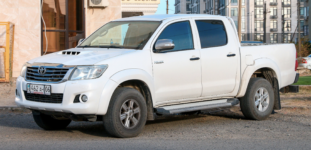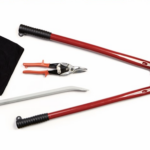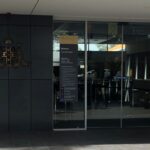The Offence of Taking or Being Carried in a Conveyance Without the Owner’s Consent

Four men suspected of being part of a criminal group have been charged with a string of offences over an alleged police on the Northern Beaches of Sydney involving a utility taken without the owner’s consent.
Police say they were called to Ayama Avenue in Manly in relation to an alleged assault.
Attending officers from Northern Beaches Police Area Command were told that those involved had driven off in a Toyota Hilux, and the suspected vehicle was located a short time later on Warringah Road in Forestville.
Police say they attempted to pull the vehicle over and had to commence a pursuit after it failed to comply.
Roads spikes were then deployed and the ute containing five men was stopped Starkey Street in Forestville, one of whom was injured and taken to hospital for treatment.
The remaining four men – two of whom were aged 24, one aged 19 and one 25 – were arrested and taken to Manly Police Station where they were each charged with:
- Being carried in a conveyance taken without the consent of the owner,
- Having face blackened or otherwise disguised with intent to commit an indictable offence,
- Participating in a criminal group,
- Affray, and
- Kidnapping in company with intent to commit a serious indictable offence, being the offence of assault occasioning actual bodily harm.
One of the 24-year old men was also charged with police pursuit, driving recklessly and using an offensive weapon to prevent lawful detention.
The injured man, believed to be the owner of the ute, has since been released from hospital.
The four defendants will face Manly Local Court to answer the allegations.
The offence of taking or being carried in a conveyance without the owner’s consent
Taking or being carried in a conveyance without the owner’s consent is an offence under section 154A of the Crimes Act 1900 (‘the Act’) which expressly amounts to a ‘larceny’ in New South Wales.
‘Larceny’ is an offence under section 117 of the Act which carries a maximum penalty of 5 years in prison.
What does the prosecution have to prove?
To establish the offence of taking or being carried in a conveyance without consent, the prosecution must prove beyond reasonable doubt that:
- You took and drove a conveyance, or you took a conveyance for the purpose of driving it, or to secrete it, obtain a financial reward for it, or for any other fraudulent purpose, or you allowed yourself to be carried in it,
- You did not have the owner of the conveyance’s consent to do so, and
- You knew the owner did not consent.
What is a conveyance?
A ‘conveyance’ is defined as any cart, wagon, cab, carriage, motor car, caravan, trailer, motor lorry, tractor, earth moving equipment, omnibus, motor or other bicycle, tank or other military vehicle, or any ship, or vessel, used or intended for navigation.
What is a vessel?
A ‘vessel’ is a water craft of any description used or capable of being used as a means of transportation on water.
What are the legal defences to the charge?
If you are able to raise evidence of a defence to the charge of taking or being carried in a conveyance without consent, the onus then shifts to the prosecution to prove beyond a reasonable doubt that the defence does not apply to the circumstances of your case.
If the prosecution is unable to do this, you are entitled to an ‘acquittal’; in other words, a verdict of not guilty.
Legal defences to the charge include duress, necessity, self-defence and what’s known as ‘claim of right’; which is where you had a genuine belief you were legally entitled to the property.
Going to court?
If you have been accused of taking or being carried in a conveyance without the owner’s consent, contact Sydney Criminal Lawyers anytime to arrange a free conference with an experienced defence lawyer who will accurately advise you about how the law applies to your situation, as well as your options and the best way forward, and fight for the optimal outcome in your case – so you can get on with what’s important in your life.






